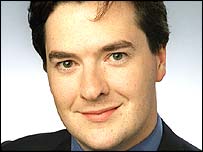"I've not always been a supporter of faith schools but experience has converted me. Such is the pressure on small minorities, such are the forces of assimilation (Scottish Jewry "peaked" at 14,000 and now barely musters 5,000) that only day schooling gives you any chance of providing a rooting in your particular tradition, a firm basis of knowledge and experience with which to face a largely secular society."His argument seems to be that faith schools are essential to the preservation of religious tradition against the onslaught of secularism - the experience of Glasgow's Jewry being an example of what happens when you don't have religious schooling:
"I look at the contribution that Glasgow Jewry has made to the City of Glasgow since the first Jew settled there in 1812. It would be very sad if the faith that has contributed so much that is of value to western society were to vanish from Glasgow - and Cardiff and London come to that - because government has more important things to worry about and secularists have no time for any faith other than their own."Leaving aside his assumption that it is the role of education to preserve religious traditions, the evidence does not support his conclusions.
First the idea that faith schools are under threat from the forces of secular militancy:
"Sitting at the meeting at the DfES, I became aware of a number of things. First, the strength of secular fundamentalism which would sweep away faith schools as a matter of ideological principle. We are in for a very tough time."As an outside observer, I don't really get the impression that the forces of secularism have the upper hand down south at the moment but since Bayfield used Scotland as an example, shouldn't he have shown some awareness that the DfES has no jurisdiction in Scotland? Because the idea that faith schools up here are under threat from 'secular fundamentalism' could only have been suggested by a tourist.
And as the census figures show there isn't any relationship between the size of Glasgow's religious minorities and the existence or otherwise of faith schools. I can say this with confidence because in the public sector we do not have now, nor have we ever had, any Jewish, Seikh, Hindu, Buddhist, or Muslim schools in Glasgow.
As the Jewish population has declined, so have most others. All but three religious categories showed a dip in their membership over the last 10 years. These might surprise you. No prizes for guessing that Islam is one of the religions experiencing growth but I doubt many people would have guessed this has only been by 0.7%. A pathetic performance compared to the Buddhists, who either by breeding or by gaining converts, have grown by a considerable 28.5%. But the fastest growing religion in Glasgow is, erm, "Another religion". The tenets of this particular creed(s) is unclear but we do know that whoever they are, they're doing a better job than the Jews, Christians, Muslims, and Seikhs at gaining converts because over ten years they've grown at a rate of 258.1%.
Conclusion: Traditional religion is in decline in Scotland. Despite controlling around 35% of the schools in Glasgow, the Roman Catholic Church is losing members. Despite having a nominal influence on the rest of the system, the Church of Scotland is losing members. The Jewish congregation is Glasgow has never controlled any schools in Glasgow and is losing members. People are more willing than they used to be to either switch, or dispense with altogether, religious allegiances and those gaining converts are the unusual, the exotic and the heterodox. Adherents to the traditional faiths might want to ask why this is, rather than expecting the tax-payer to bale them out and sustain their position in society. Because apart from anything else, the evidence would suggest that this a futile exercise anyway.
(Cross-posted at DSTPFW)





